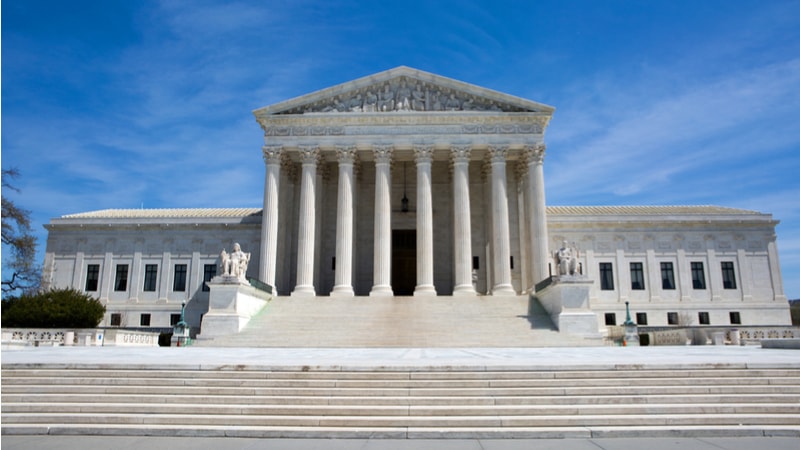
The Trump administration has asked the Supreme Court to block a lower court ruling that is preventing the Department of Government Efficiency (DOGE) from accessing Americans’ unredacted data held by the Social Security Administration (SSA).
Solicitor General John Sauer, who works for the Justice Department and is the Federal government’s chief representative in Supreme Court cases, filed an emergency appeal on Friday – making it the first appeal to the high court directly involving DOGE.
It comes after a Federal appeals court last week denied the Trump administration’s request to lift a lower court order that restricts DOGE’s ability to access certain data held by SSA.
Judge Ellen Hollander of the U.S. District Court for the District of Maryland issued a preliminary injunction last month to block DOGE from accessing certain SSA data after a group of labor unions and retirees sued the Trump administration. They claimed that DOGE was violating privacy laws and creating information security risks by accessing that data.
The preliminary injunction allows DOGE to access taxpayer data that’s been redacted or has had any personally identifiable information removed, as long as staffers undergo training and background checks.
The order also directs DOGE to delete all non-anonymized taxpayer data that it may have gained access to through SSA systems.
In issuing the injunction, Hollander said that the plaintiffs would likely succeed in their claim that DOGE had violated privacy laws in its work at SSA and had caused “irreparable harm.”
In the Friday appeal, the Trump administration argued that the district court made “glaring legal errors,” including claiming that the plaintiffs lack standing. It also argued that the district court is “installing itself as the supervisor of the SSA’s routine operational decisions.”
“Left undisturbed, this preliminary injunction will only invite further judicial incursions into internal agency decision-making,” Sauer wrote in the 211-page emergency appeal.
Sauer asked the Supreme Court the block the order from Hollander as the lawsuit plays out. The Supreme Court has asked the plaintiffs’ attorneys to respond to the administration’s request by May 12.
Elizabeth Laird, the director of the Center for Democracy and Technology’s Equity in Civic Technology project, said in a statement that providing DOGE access to “highly sensitive personal data poses a grave threat to everyday people.”
“If DOGE gets a hold of this information, it opens the floodgates on a host of potential harms. It also normalizes a very dangerous practice for other Federal agencies,” Laird said.
